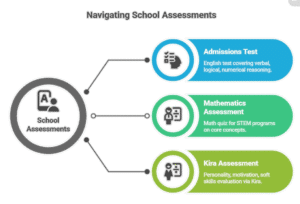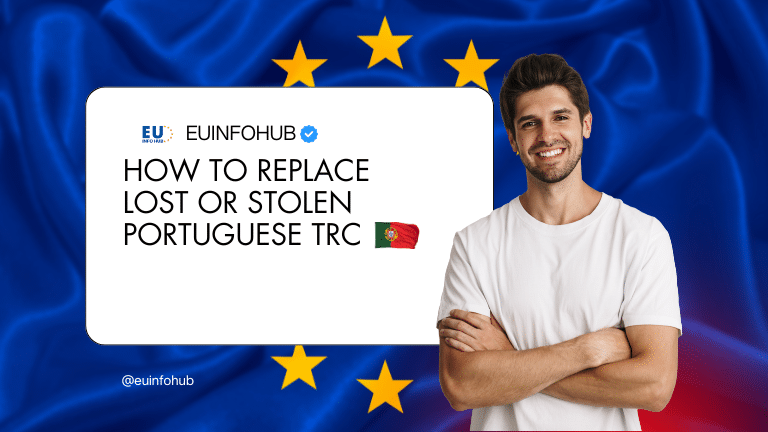If you’re gearing up for European University Admission 2026, you’ve landed in the right spot. Picture this: you’re juggling application forms, test prep, and deadlines that seem to stretch from Lisbon to Warsaw. It can feel overwhelming, but with a clear roadmap you’ll breeze through each step. In this ultimate guide, you’ll find everything you need to plan, apply, and secure your spot no hair pulling required.
Here’s what you’ll master:
- Mapping intake seasons and country deadlines
- Understanding academic, language, and assessment requirements
- Crafting standout applications and personal statements
- Navigating interviews and Kira assessments
- Tackling visa paperwork early
- Exploring funding options and scholarships
- Finalizing housing, enrollment, and orientation prep
So, let’s get into the topic.
Plan your timeline
Before you fill out any forms, you need a timeline. Knowing intake seasons and country-specific deadlines keeps you on track and stress-free.
Check intake seasons
European universities typically run three main intakes:
| Season | Months | Notes |
|---|---|---|
| Fall | Sept–Oct | Most programs start here, especially undergraduate degrees |
| Spring | Jan–Feb | Fewer slots, common for business and engineering postgraduate courses |
| Summer | Apr–Sept | Limited full-degree intakes, growing in Germany and Austria |
- If you’re eyeing winter intake, explore january intake universities in europe 2026 for a full list.
- Fall start is your safest bet for the widest program choice.
Review country deadlines
Intake seasons are a start, but each country has its own dates and rules. Here’s a quick country breakdown for summer 2026 entry:
| Country | Intake type | Non-EU deadline | EU/EEA deadline | Start month | Source |
|---|---|---|---|---|---|
| Germany | Summer semester | Dec 15, 2025 | Jan 15, 2026 | April | Succeed with Success |
| Austria | Spring/Summer | Nov 13, 2025 – Jan 7, 2026 | Until Feb 5, 2026 | March | Succeed with Success |
| Italy | Third intake | July 7 – Aug 29, 2025 (EU only) | Not open for non-EU | July | Succeed with Success |
| Luxembourg | Spring intake | Closed for non-EU | Program-dependent | Spring | Succeed with Success |
Planning tip: calendar reminders help you avoid last-minute rushes. Block time for each application step well before deadlines.
Research admissions requirements
Each university and program sets its own bar. Getting clarity early prevents surprises at the last minute.
Academic prerequisites
Most bachelor’s programs expect a high school diploma equivalent to the country’s leaving certificate. For master’s candidates, a relevant bachelor’s degree with a minimum GPA or class rank applies. If you need a deeper dive, check our guide on admission requirements for european universities.
Language tests
Unless you’re applying in your native language, universities typically require proof of proficiency:
- English-taught programs: IELTS (6.5+), TOEFL (90+), or Cambridge certificates
- Non-English programs: TestDaF or DSH for German, DELF/DALF for French, DELE for Spanish
Always confirm minimum scores on the program webpage, and book your test slots early to avoid full sessions.
Assessments and tests
Some schools add an extra evaluation layer to gauge your fit and potential.

Admissions test
IE University runs an Admissions Test in English that covers verbal, logical, and numerical reasoning [1]. You’ll tackle this before moving forward.
Mathematics assessment
If you’re eyeing STEM programs, expect a math evaluation. Schools in the School of Science and Technology often require a dedicated quiz on core math concepts.
Kira assessment
Most programs now include a Kira assessment to evaluate your personality, motivation, and soft skills. You’ll record short video or written responses. Be concise, authentic, and practice ahead of time so you’re not winging it.
Build your university list
You can’t apply everywhere. Narrowing down helps you focus on programs that match both your goals and your profile.
Shortlist by criteria
Consider these factors:
- Program relevance and specializations
- Tuition fees and living costs
- Language of instruction
- Campus location and culture
- Internship and research opportunities
Rank your top 8–10 choices. Then pick 3–5 safety options where your credentials shine.
Consider application routes
Direct applications
Many continental universities let you apply directly via their website. You fill in forms, upload documents, and sometimes pay a fee. Dead simple, but keep an eye on individual program rules.
Centralized platforms
Countries like the UK and France run hub systems:
- UCAS for the UK, with a new structured personal statement format for 2026 applicants [2].
- Parcoursup in France, where you can list up to 10 courses, ranked by preference.
Knowing your route helps you avoid mix-ups and double entries.
Get expert guidance
Talking to mentors, faculty, or university admissions counselors can save you headaches. They’ll flag any quirks in your top picks and boost your confidence.
Prepare your application
Now the real work begins. A polished application for European university admission 2026 shows you’re serious about joining the program.
Write your personal statement
This is your chance to tell your story:
- Open with a hook why this field sparks your passion
- Highlight relevant achievements or projects
- Show you’ve researched the program’s unique offerings
- End with your goals and how you’ll contribute
Keep it under 4,000 characters or the platform’s limit. Use short paragraphs and clear language. Let your enthusiasm shine through.
Collect supporting documents
Having these ready early prevents last-minute scrambles:
Transcripts and diplomas
Get certified copies of your academic records. Some universities require official translations if they’re not in English or the program’s language.
Letters of recommendation
Aim for 2–3 strong references from professors or supervisors who know your work well. Provide them with your CV and personal statement draft so they can write pointed, insightful letters.
Additional information
Some platforms use an “Additional Information” section for special circumstances. The Common App update for 2026 adds structured prompts, each requiring at least 350 characters. Use this space wisely to explain gaps, achievements, or circumstances that don’t fit elsewhere.
Fill out online forms
Each portal demands specific fields double-check:
- Name spelling, contact details, and passport number
- Program codes and intake terms
- Document uploads in correct formats (PDF recommended)
Review every page before hitting submit.
Navigate the interview stage
Interviews can feel daunting, but a little prep goes a long way.
Interview prep tips
- Research common questions: Why this university? Describe a challenge you overcame.
- Practice concise answers 2–3 sentences per point works well
- Set up a quiet, well-lit space for video calls
- Test your camera, microphone, and internet speed
Aim to be yourself. Admissions teams value authenticity as much as polished delivery.
Tackle the Kira assessment
For video responses:
- Dress as you would for an in-person meeting
- Keep background distractions to a minimum
- Jot quick bullet points for each question, but avoid reading scripts
- Smile and maintain eye contact with the camera
Practice on Kira’s demo platform so you’re familiar with the flow.
Understand the visa process
Non-EU students often face more paperwork for European university admission 2026. Here’s how to stay ahead.
Start early if non-EU
IE University recommends that non-EU candidates confirm their spot and begin visa steps ASAP, since some regions have strict deadlines [1]. Spots fill fast.
Prepare visa documents
Common requirements include:
- Valid passport with at least six months’ validity
- Proof of admission or enrollment confirmation
- Financial guarantee or blocked account statement
- Health insurance valid in the host country
- Passport-size photos as per specifications
Check your destination’s embassy website for country-specific details.
Confirm enrollment
Once you receive your admission letter, follow the university’s instructions to confirm your spot. This often unlocks your visa invitation letter. Keep digital and hard copies of everything.
Explore funding and scholarships
Tuition and living costs add up while taking admission in European universities in 2026. Therefore, you must research every funding avenue.
EU mobility grants
Erasmus+ (2021–2027) offers mobility scholarships for exchange and joint-degree students [3]. Even full-degree seekers can find related funding streams.
University scholarships
Most institutions award merit or need-based grants. Check department webpages for deadlines, which often fall earlier than program deadlines.
External funding opportunities
Consider:
- DAAD scholarships for study in Germany
- Fulbright programs (where applicable)
- Private foundations and corporate partnerships
Apply broadly. Even small awards can offset living expenses.
Finalize enrollment steps
You’ve got the offer, visa, and funding sorted. Now tie up loose ends.
Secure your place
Pay any enrollment or tuition deposits by the deadline. Missing this can void your offer. Set calendar reminders.
Arrange housing
Options include on-campus dorms, shared apartments, or homestays. University services often list vetted housing partners. Submit your housing application early to get the best deals.
Prep for orientation
Orientation week introduces you to campus life, local culture, and academic resources. Book flights and plan arrival dates a few days before classes start so you can acclimate.
Review key takeaways
- Map your timeline by intake season and country deadlines
- Research academic, language, and assessment requirements early
- Build a targeted university list and choose the right application route
- Polish your personal statement, gather documents, and review every form
- Prep thoroughly for interviews and Kira assessments
- Start the visa process ASAP, especially if you’re non-EU
- Explore Erasmus+, university scholarships, and external grants
- Confirm enrollment, lock in housing, and plan your orientation
That’s all you need to know about European university admission in 2026. Now it’s your turn. Pick one task, maybe drafting your personal statement or booking that language test, and take action today. Have questions or tips from your own admission journey? Head to EU Info Hub for more detailed information.
















1 thought on “European University Admission 2026 Guide: Expert Strategies for Successful Applications”